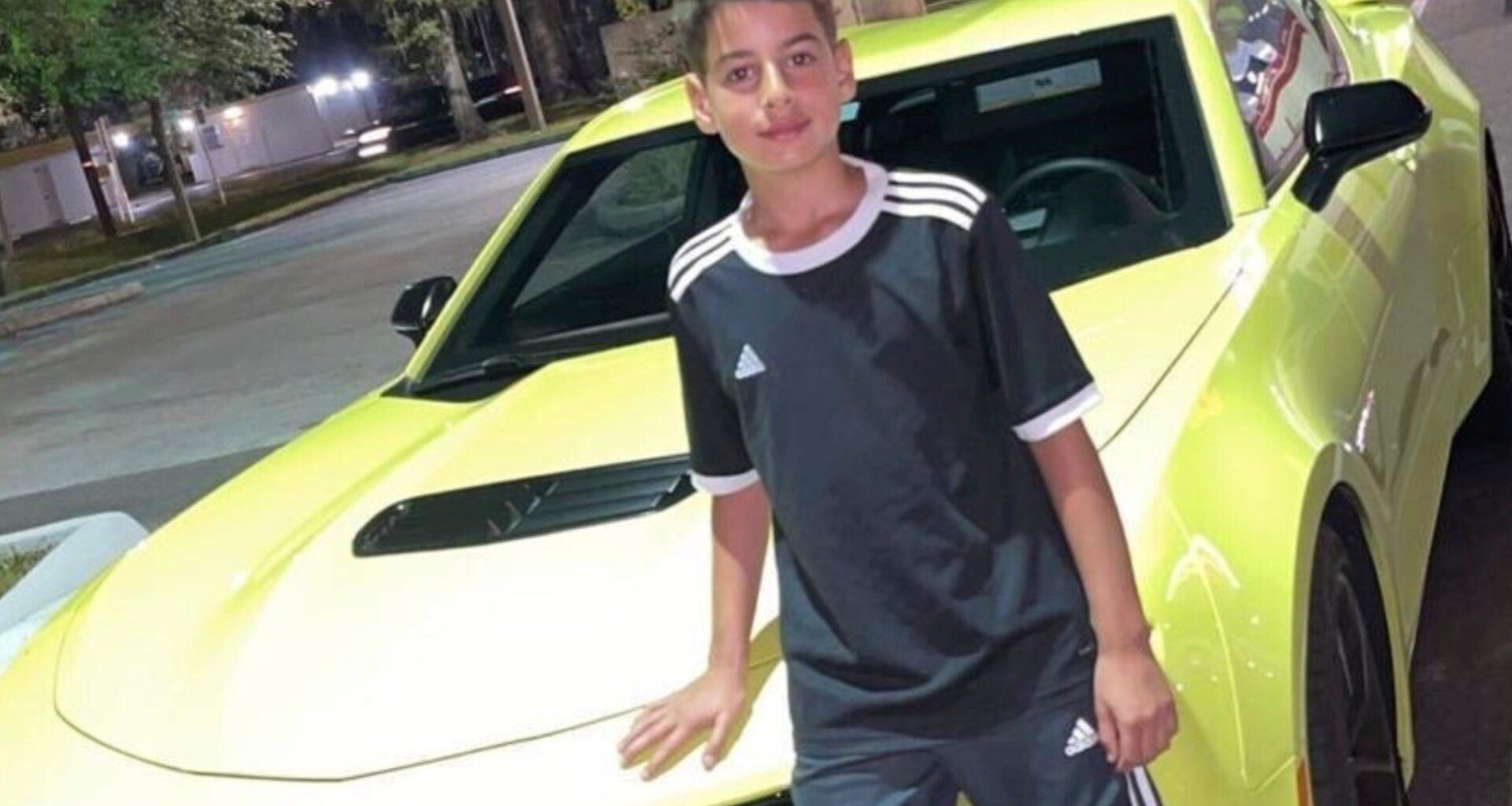ST. PETERSBURG, Florida — A Florida family already grieving the beating death of a 20-year-old relative is now pleading with US leaders to help free the dead man’s cousin, a 16-year-old Palestinian-American from Florida who has been held in an Israeli prison for eight months.
Relatives, advocacy groups and some Congress members have been seeking the release of Mohammed Ibrahim since he was taken into custody when he was 15 by the Israeli military in February.
Mohammed’s 20-year-old cousin, Sayfollah Musallet, was beaten to death by settlers in the West Bank village of Al Mazra as-Sharqiya earlier this year.
“This is really about two American sisters, one who just buried her son and her older sister going to give her support, and also praying that her son doesn’t join the club of Americans killed overseas,” said Mohammed’s uncle, Zeyad Kadur. “They’re going through this together.”
“It’s basically made our family numb,” said Kamel Musallet, Sayfollah’s father and Mohammed’s uncle. “It’s been over three months and there’s not a day that me and my wife don’t cry.”
Get The Times of Israel’s Daily Edition
by email and never miss our top stories
By signing up, you agree to the terms
Jailed while visiting family
Mohammed, of Palm Bay, Florida, was visiting family in the West Bank with his parents in February, according to the Council on American-Islamic Relations.
He was arrested on February 15 at a family home in their village near Ramallah for allegedly throwing rocks at Israeli settlers in the West Bank, according to the group and several members of Congress.
The teen could get up to 20 years in prison for the alleged offense, for which his supporters say there is scant evidence.
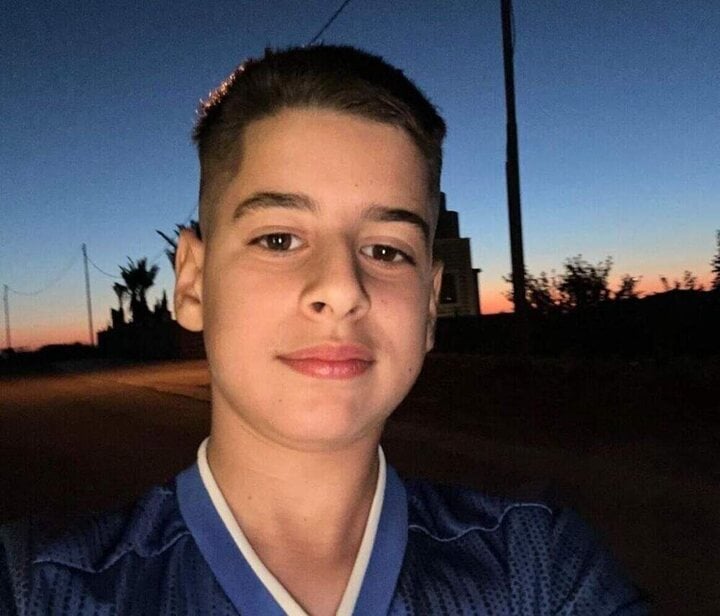
Palestinian-American teen Mohammed Ibrahim. who was arrested by the IDF in the West Bank in February 2025 (Courtesy)
The IDF conducted regular arrest raids in the West Bank during the war with Hamas, which began after the terror group’s October 7, 2023, invasion and massacre in southern Israel. Over the past two years, the army has taken unprecedented numbers of Palestinians into prisons where inmates have reported poor treatment and conditions.
Israel says the mass arrests are to root out terrorism. But civilians and stone-throwers have been caught up in the raids, among them Palestinian-Americans like Mohammed.
In an affidavit provided by Kadur, Mohammed is documented as telling his Palestinian lawyer that he was assaulted by IDF soldiers using rifle butts when he was arrested and only confessed to stone-throwing after he was threatened by interrogators with another beating.
“Initially, I refrained from confessing, but the interrogator threatened that if I did not comply, he would instruct the soldiers to beat me. Out of sheer fear, I ultimately confessed,” the affidavit quotes the teen as saying.
Family says they have been kept in the dark
More than 100 American faith-based, human rights and civil rights organizations have sent a joint letter to US Secretary of State Marco Rubio urging action to obtain Mohammed’s release.
In addition, in a letter sent Tuesday to Rubio and the US ambassador to Israel, Mike Huckabee, 15 US senators and 12 US representatives said they have “grave concern” over Mohammed’s situation. They urged Rubio and Huckabee to intervene by “engaging the Israeli government directly to secure the swift release of this American boy.”
Musallet said that Huckabee visited the family in July, following his son’s death, raising their hopes that Mohammed would be released.
“We said, ‘alhumdulillah,’ at least some good has come out of it and Mohammed was going to come out of prison,” Musallet said, using an Arabic phrase giving praise to God. “And three-and-a-half months later, still nothing.”
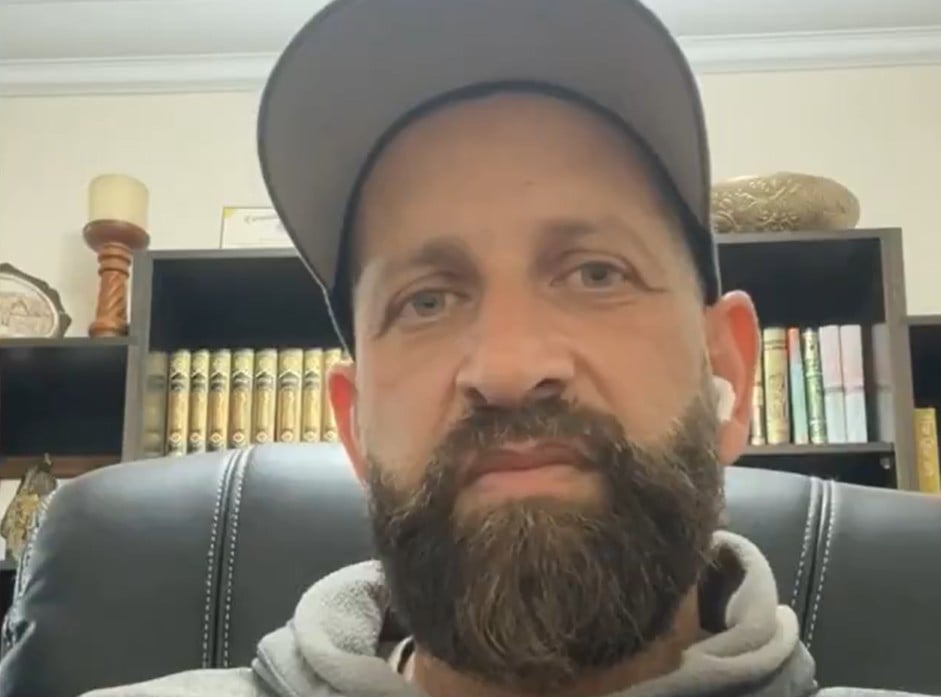
Kamel Musallet. (Screen capture: X/Zeteo)
Mohammed’s family has been barred by the IDF from direct contact with their son since his arrest and has had to rely on sporadic reports about his condition at Israel’s Megiddo and Ofer prisons from the US Embassy in Israel, his advocates said.
“We hope he knows we’re doing everything we can to get him out,” said Zaher Ibrahim, Mohammad’s father.
Kadur said Mohammed, who turned 16 while in prison, was “abducted in the middle of the night and handcuffed and blindfolded.”
For his parents, “the last time they saw their son was when he was thrown in the back of a Jeep” in February, Kadur said.
“He’s not even an adult,” the teen’s uncle said. “He’s a minor and in our eyes as a family, we also believe he’s a hostage because a 15-year-old taken from his bedroom at gunpoint, blindfolded and handcuffed doesn’t describe the word prisoners.”
Abysmal conditions described in Israeli prisons
In the affidavit provided to the family by his lawyer, the teen said that cells are overcrowded, with some prisoners sleeping on mattresses on the floor.
Mohammed has lost weight and suffered a scabies infection, according to reports from the US Embassy shared with his family and obtained by The Associated Press.
“His health, mentally and physically, are a big question for the family,” Kadur said.
In April, a teenager from the West Bank who was held for six months without charge in Megiddo prison, where Mohammed spent time, became the first Palestinian minor to die in Israeli detention, collapsing in the prison’s yard.
Defense for Children International-Palestine, whose lawyer met with Mohammed, said inmates at Ofer Prison are given meager portions of food at breakfast and lunch, no dinner and no fresh fruit. Showers are provided but only for a short time for a group of prisoners and not everyone gets a shower, the group claimed.
The High Court of Justice issued a ruling in September saying the state failed to fulfill its legal obligations to adequately feed Palestinian security prisoners, and ordered it to take steps to provide enough food “to enable a basic existence.”
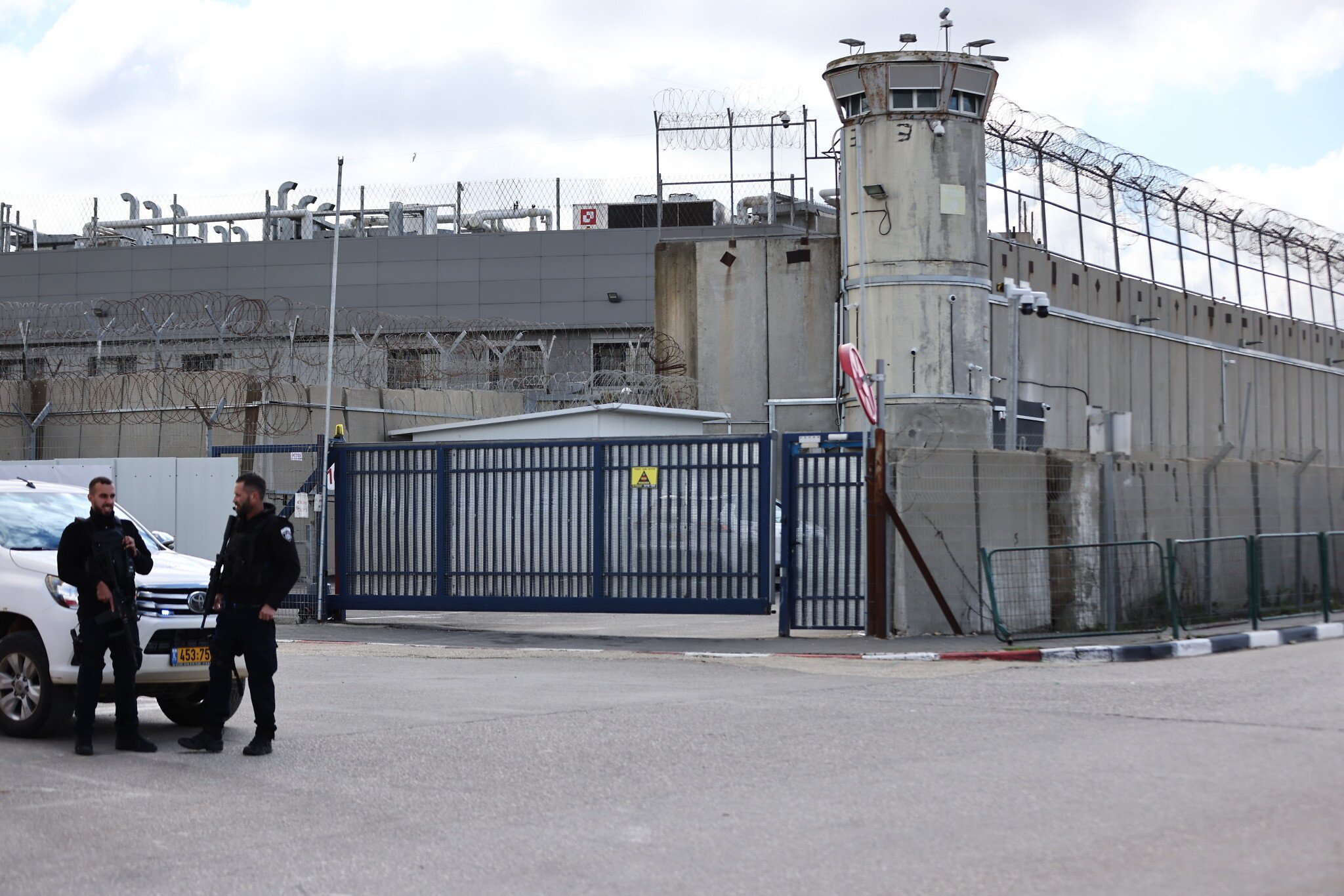
Israeli security forces on guard at Ofer Prison, outside Jerusalem, February 8, 2025. (Jamal Awad/Flash90)
Mohammed’s mother and father remain in the West Bank, hoping to return to the US with him, the group said, adding that they fear that if they leave, Israel will not let them return.
The IDF, police and the Shin Bet domestic security agency did not respond to AP requests for comment about Mohammed’s case. The Israel Prison Service said it does not comment on individual inmates or provide information regarding their identity, legal status, location, or charges, due to privacy, operational and security considerations.
The US State Department said in a statement that it is tracking Mohammed’s case closely and working with the Israeli government on the matter. It said it had no further comment due to privacy and other concerns.
Among the Palestinians apprehended during Israel’s West Bank raids, some are released within days. But others, including teens, have been held without charge or trial for months. Other Americans have faced extended military detention.
At least four Palestinian-Americans have been killed by the IDF or settlers since the war’s start, including Mohammed’s cousin, whom family members said was beaten to death by Israeli settlers.
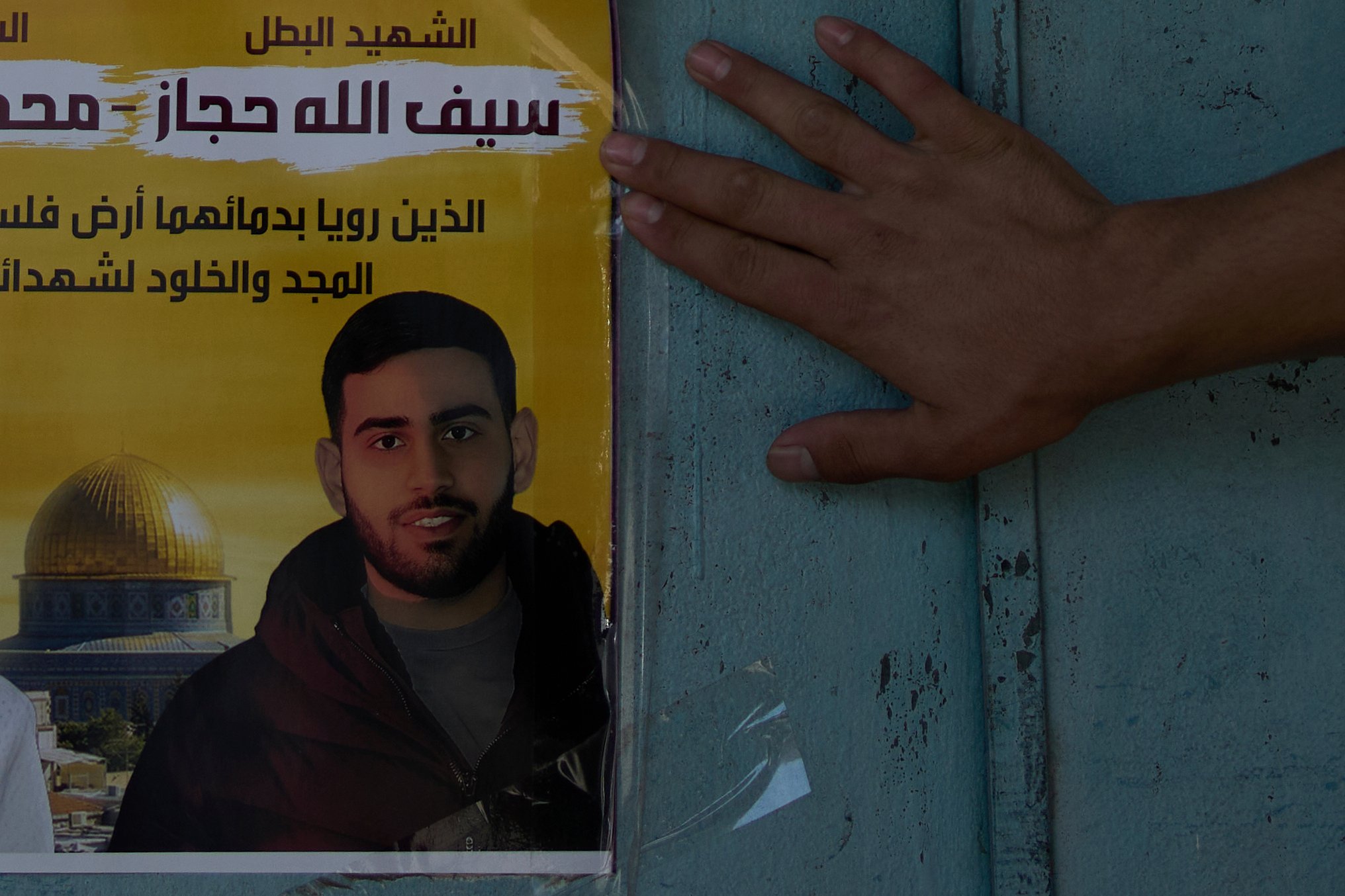
A memorial poster showing Palestinian-American Sayfollah Musallet, who was beaten to death by Israeli settlers, is displayed outside of a bakery in the West Bank town of Al Mazra as-Sharqiya, Monday, July 21, 2025. (AP/Maya Alleruzzo)
At Ofer Prison, where Mohammed is currently held, detainees who spoke to the AP reported meager rations of food, overcrowding and regular beatings by guards.
The teen’s affidavit says he spent the first month of his incarceration being interrogated in Ofer Camp — a facility Israel’s military developed during the war to house Gaza detainees that has drawn criticism for inhumane conditions.
Kadur, the teen’s uncle, said he doubted other American citizens would be treated this way.
“I have to ask the question to our elected officials on any level, if his name wasn’t Mohammed, if he wasn’t Palestinian-American, would he still be there?” Kadur said.
“The real question is why is a 16-year-old starved and with a skin infection still there instead of back home going to a football game or getting his driver’s permit?”
Times of Israel staff contributed to this report.

